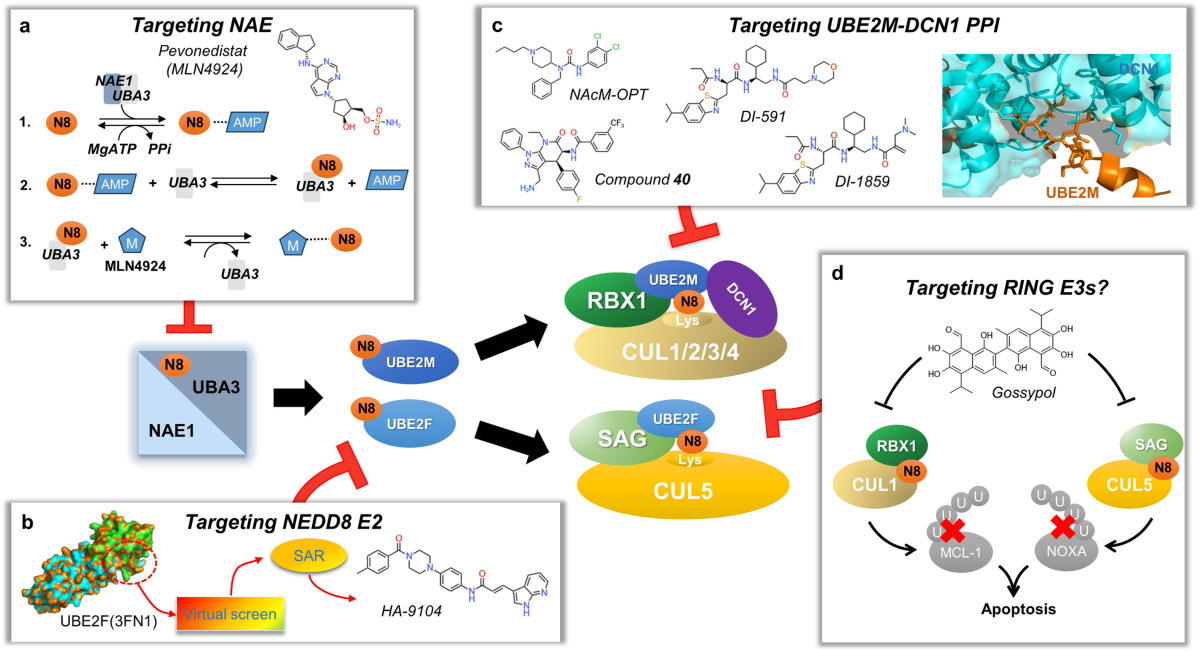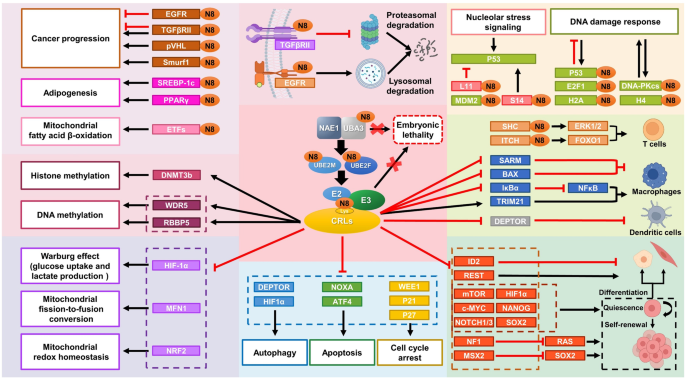Reference




OpenAI's Answer
NEDD8 conjugation, also known as neddylation, is a vital cellular mechanism that involves the attachment of the ubiquitin-like protein NEDD8 to target proteins. This process plays crucial roles in regulating various cellular functions. Here are some of the significant aspects of NEDD8 conjugation:
-
Protein Degradation and Stability: NEDD8 conjugation modulates the function and stability of proteins. It is essential for the activation of cullin-RING ubiquitin ligases (CRLs), which are involved in tagging proteins for degradation via the ubiquitin-proteasome system source.
-
Cell Cycle Regulation: Neddylation is integral to cell-cycle control and protein degradation pathways. This modification ensures that crucial proteins are broken down at the right time, thus maintaining cellular homeostasis and facilitating cell-cycle progression source.
-
Role in Tumorigenesis: NEDD8 conjugation has been implicated in cancer biology, as it affects the stability and activity of proteins involved in tumor progression. Therefore, targeting neddylation pathways represents a potential therapeutic strategy in cancer treatment source.
-
Cellular Morphology and Cytoskeletal Arrangement: The neddylation pathway plays a role in regulating the actin cytoskeleton, affecting cellular morphology and motility. The NEDD8 pathway is essential for various cellular processes that depend on cytoskeletal dynamics source.
-
Regulation of Endocytosis: NEDD8 conjugation enhances endocytic pathways, such as clathrin-mediated endocytosis, by promoting the ubiquitination of receptors like the EGF receptor, which facilitates their lysosomal degradation source.

These roles make NEDD8 conjugation a critical process influencing various physiological and disease-related cellular mechanisms.